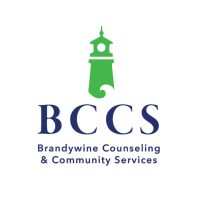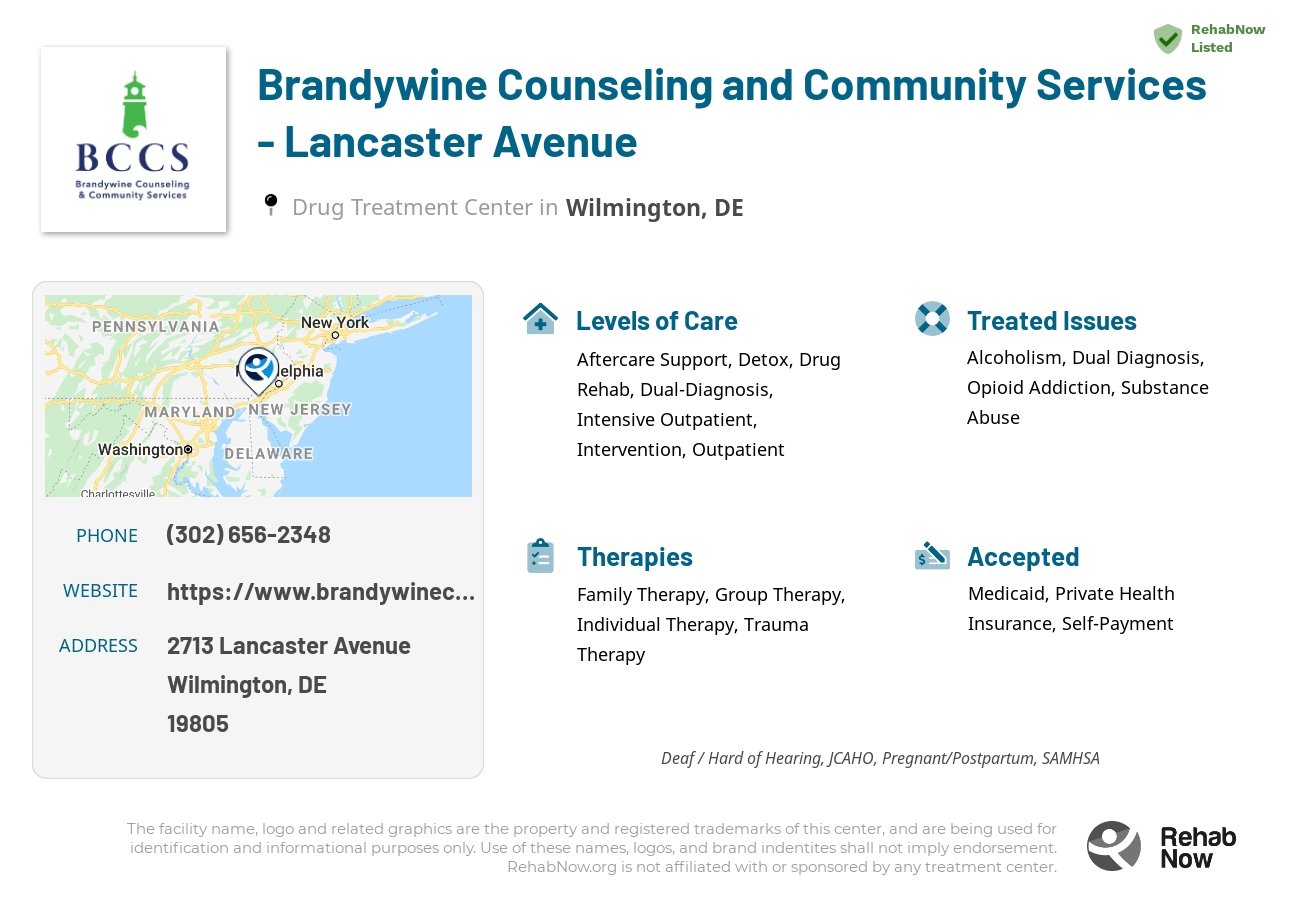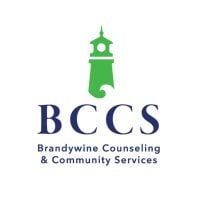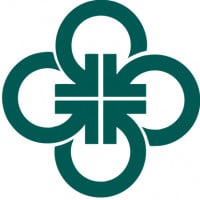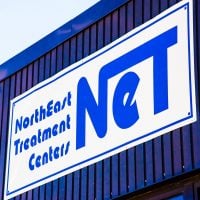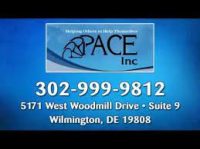Brandywine Counseling and Community Services - Lancaster Avenue
Drug Rehab Center in Wilmington, Delaware
Brandywine Counseling and Community Services - Lancaster Avenue is an outpatient treatment center in Wilmington, Delaware that specializes in addiction and substance use disorders, offering individual, group, and family counseling, as well as various therapies and recovery support services, including a specialized program for opioid addiction.
About Brandywine Counseling and Community Services - Lancaster Avenue in Delaware
Brandywine Counseling and Community Services (BCCS) on Lancaster Avenue in Wilmington, DE, is an accredited addiction treatment center committed to promoting healthy lifestyles for clients and their families. With a focus on comprehensive care, BCCS is equipped to address both addiction and co-occurring mental health issues.
• Medication-assisted treatment (MAT) program: Combines approved medications with counseling and behavioral therapies to enhance the effectiveness of substance use disorder treatment.
• Intensive outpatient treatment (IOP): Designed for individuals requiring more than standard outpatient care, participants engage in multiple therapeutic sessions each week while continuing with daily life activities.
• Outpatient treatment: Offers regular therapeutic sessions, enabling individuals to integrate recovery teachings into their daily routines.
• Justice-involved services: Specialized programs, including DUI treatment and assessment and referral, ensure those entangled with the law due to substance-related incidents receive appropriate care and guidance.
BCCS on Lancaster Avenue is accredited by The Joint Commission (JCAHO) and certified by the Delaware Department of Health and Human Services. The center is also affiliated with the National Association of Addiction Treatment Providers (NAATP) and has been awarded the Quality Provider designation by the Substance Abuse and Mental Health Services Administration (SAMHSA).
The facility treats a wide range of addictions, including alcohol, opioids, and other substances. Treatment methods encompass evidence-based practices such as Cognitive Behavioral Therapy (CBT) and Dialectical Behavioral Therapy (DBT), as well as experiential therapies like art and music therapy. The center offers various levels of care, including medical detoxification, medication management, and recovery support services.
Genders
Ages
Modality
Additional
Accreditations
SAMHSA

JCAHO
Conditions and Issues Treated
Rehabilitation, Medication, and Therapy – a combination of all three is most effective.
The most successful treatments for drug dependence or abuse have been those that include education and counseling and medication such as methadone or buprenorphine. The right drug abuse treatments need counseling, psychotherapy, and detoxification or medications to help with withdrawal symptoms.
Substance abuse can take many different forms, including the overuse or misuse of prescription drugs, unprescribed drugs, alcohol addiction, and drug addiction.
A combination of treatments is often needed to treat drug abuse issues effectively. In the case of drug abuse, there is no easy answer or one-size-fits-all cure.
While some drug addictions can be treated with counseling and support groups, many drug abusers also need medication to help them overcome their addiction. In other cases, drug abuse can lead to a medical problem and require medical treatment.
Treatment for drug addiction typically combines counseling and psychotherapy with medication and behavioral therapies. In some rare cases, hospitalization may also be required. All different treatments combined are the best way to help someone addicted to drugs, alcohol, or other substances.
Treatment for opioid addiction is best made with the help of medical professionals who are experienced in dealing with these types of drugs. This treatment can involve medications, exercise, behavioral therapy, and counseling sessions. It is important to note that the effectiveness of treatments for opioid addiction vary, so it is vital to research which treatment options are suitable for each individual.
Many people who struggle with opioid addiction need to attend specific programs like methadone , Suboxone or Vivitrol clinics.
These types of programs will provide the patient with legal, prescription medications that can help them overcome their cravings for illegal opioids like heroin or fentanyl . If the patient has a chronic condition like Hepatitis C, they must undergo treatment before they can begin taking these medications.
Individuals who are addicted to drugs and/or alcohol often have one or more co-occurring mental health disorders. Addressing both the addiction and the mental health problems at facilities like Brandywine Counseling and Community Services - Lancaster Avenue can be very beneficial for these individuals.
Common mental health conditions that often co-occur with addiction include:
- Anxiety Disorders – People with drug and alcohol problems often suffer from anxiety disorders such as panic disorder, obsessive-compulsive disorder, social anxiety disorder, and generalized anxiety disorder.
- Depression – One of the most common mental illnesses co-occurring with addiction is major depressive disorder.
- Attention-deficit hyperactivity disorder (ADHD) – Many people with drug and alcohol problems also suffer from ADHD.
- Bipolar Disorder – People with bipolar disorder are more likely to suffer from drug and alcohol problems than the general population, and vice versa.
Levels of Care Offered
This center offers a variety of custom treatment tailored to individual recovery. Currently available are Aftercare Support, Detox, Drug Rehab, Dual-Diagnosis, Intensive Outpatient, Intervention, Outpatient, with additional therapies available as listed below.
Detox is the stage of recovery where the drugs or alcohol are entirely removed from your body. There are two different ways to detox, with medications and without. For many drugs and alcohol, the acute phase of detox can be completed in a number of days.
An intensive outpatient treatment program, or IOP, is set up for those struggling with an addiction to begin the recovery process. However, the patient will not live at the facility during treatment.
IOP involves patients coming in and out of a medical office building regularly to receive therapy and other services while continuing their life outside of these visits.
IOP is a step up from drug detoxification or alcohol detox. However, it’s still considered a phase of recovery rather than the ultimate goal. There are many rehabs and treatment facilities available to patients in need of IOP.
Outpatient treatment can be considered the lowest intensity level of addiction treatment in Wilmington, DE. It is ideal for early phase addiction or lower intensity addictions. Brandywine Counseling and Community Services - Lancaster Avenue peer group support, 12-step programs, and individual counseling are likely to be involved.
Intervention services can be beneficial for people who have not been able to overcome drug and alcohol addiction on their own. It is recommended for individuals whose addiction has led to dangerous or life-threatening circumstances.
Intervention services are beneficial for:
- People who have relapsed after completing other forms of addiction treatment.
- People with drug addictions that have led to dangerous health conditions, such as HIV.
- People who are at risk of losing their family, home, or job due to addiction.
- People who are having difficulty overcoming drug and alcohol addiction on their own.
- An intervention can be conducted by professionals, or by loved ones of an addict. If the person being intervened on agrees to enter addiction treatment after the intervention, the next step would be to choose a treatment program.
If they do not agree to enter addiction treatment after the intervention, loved ones may choose to go back to the drawing board and try another form of treatment. They may also choose to not receive any further treatment, but there are usually other factors in play that may make it difficult for people to stop using drugs or alcohol.
Aftercare support is vital to those who have completed a drug or alcohol treatment program. This support comes in individual and family counseling, treatment of psychiatric and other medical conditions, and medications to reduce cravings. It helps recovering addicts adjust to normal day-to-day activities and can last for a year or longer.
The majority of drug and alcohol addicts who receive aftercare treatment do not relapse. It is estimated that without aftercare, the relapse rate will be between 70 to 90 percent for most people. Aftercare is the final stage in addiction recovery, but it will also help maintain sobriety if relapse does occur.
Therapies & Programs
Individual therapy is ideal for addicts who want to focus on themselves. It can also be helpful for those whose withdrawal symptoms are exacerbated by the presence of other people.
Benefits of individual therapy are:
- Access to a personalized treatment plan that focuses on the individual needs of the addict
- More privacy during treatment sessions
- Better personal development through introspection
- Increased self-awareness regarding addictive tendencies in order to avoid relapse
- Greater potential for a long-term recovery plan
- Receiving professional advice and detox assistance from medical staff
Family therapy can help you and your family deal with old issues that may trigger substance abuse. The idea behind family therapy for drug addiction is that you are never fully healed from substance abuse until you’ve healed your relationship with your family, too. To get sober, you need to find a different way to cope with the pain in your life.
This is when a group of people in various stages of recovery meet up and discuss their experiences, triggers, successes, failures, and even alternative therapies! Unlike support groups where everyone already knows each other, group therapy is conducted along side outpatient or inpatient treatment at Brandywine Counseling and Community Services - Lancaster Avenue.
Trauma therapy is a clinical process that helps individuals deal with mental stress often caused by traumatic events. The therapist helps the person identify, understand and work through the problem. This is done with the help of talking about it in group or one-on-one counseling sessions.
Therapists use relaxation, role-playing, art, and music to help the person open up about what is bothering them. Some examples include:
- Talking about the traumatic event and how it affected them.
- Helping those who have PTSD to deal with their nightmares and recurring memories.
- Working with individuals to resolve the issues triggering the stress, whether seeing someone who reminds them of what happened or feeling helpless.
The individual is also encouraged to help others that are struggling with similar problems. This often helps them feel empowered and gives them hope.
Trauma therapy is not for everyone; it is usually reserved for people who have recently experienced a traumatic event and struggle to get over it. It is generally done for children, teenage victims of sexual assault, and war veterans.
Payment Options Accepted
For specific insurance or payment methods please contact us.
Is your insurance accepted?
Ask an expert, call (888) 674-0062
Brandywine Counseling Associated Centers
Discover treatment facilities under the same provider.
- Brandywine Counseling - Milford in Milford, DE
- Brandywine Counseling & Community Services - Newark Treatment Center in Newark, DE
- Brandywine Counseling & Community Services - Lancaster Avenue Treatment Center in Wilmington, DE
- Brandywine Counseling and Community Services - Dover in Dover, DE
- Brandywine Counseling and Community Services - West 4th Street in Wilmington, DE
Learn More About Brandywine Counseling Centers
Additional Details
Specifics, location, and helpful extra information.
Wilmington, Delaware 19805 Phone Number(302) 656-2348 Meta DetailsUpdated April 15, 2024
Staff Verified
Brandywine Counseling and Community Services - Lancaster Avenue Patient Reviews
There are no reviews yet. Be the first one to write one.
Wilmington, Delaware Addiction Information
The Delaware substance abuse statistics show that the number of deaths due to drug injury is higher than the national average. Over 16% of all deaths in the state between 2008 and 2017 were caused by drugs and alcohol. The state has been rolling out more services to address addiction in an effort to get help to those who need it.
The drug addiction problem in Wilmington, Delaware, is significant. In 2013, Wilmington had a drug overdose death rate of 26.2 per 100,000 residents. In 2016 alone, more than 1,300 cases of heroin overdoses were reported in Wilmington, Delaware. The best way to find a drug treatment facility in Wilmington, Delaware, is to ask for referrals from friends or family members who have gone through a treatment program.
Treatment in Nearby Cities
- Camden-Wyoming, DE (44.1 mi.)
- Seaford, DE (76.7 mi.)
- Bear, DE (9.3 mi.)
- Claymont, DE (7.4 mi.)
- Dover Afb, DE (43.5 mi.)
Centers near Brandywine Counseling and Community Services - Lancaster Avenue
The facility name, logo and brand are the property and registered trademarks of Brandywine Counseling and Community Services - Lancaster Avenue, and are being used for identification and informational purposes only. Use of these names, logos and brands shall not imply endorsement. RehabNow.org is not affiliated with or sponsored by Brandywine Counseling and Community Services - Lancaster Avenue.
